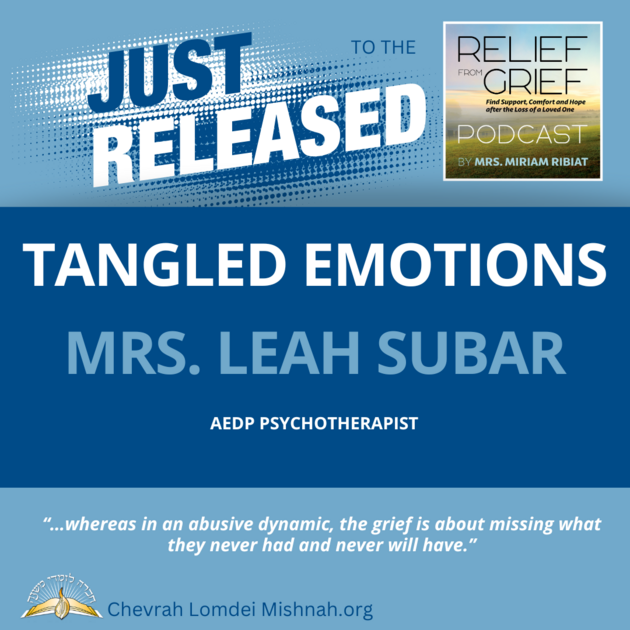
Mrs. Leah Subar, AEDP Psychotherapist
People are typically wired with a tendency toward hope and resilience. Even when a child grows up in an abusive home, the desire to repair the relationship with one’s parent is so strong. An adult child will often try and try to make it work before they realize it’s impossible to change someone else.
With proper rabbinic guidance, the adult child might need to establish very strict boundaries with the parent or maybe even cut off ties. But every so often there is that little bit of hope. Maybe, just maybe, the parent will finally get it. Maybe the birth of a baby or the marriage of a grandchild will help them see things differently, more clearly. Maybe, the child thinks, it is worth another shot. Usually, it isn’t.
Yet when the parent dies, the hope dies along with the parent. Now, the relationship will never change. If a person was so hurt by the niftar, it makes sense to think that now there will be some relief. But often instead of relief there is guilt, confusion and anger.
When an abusive parent dies, the grief process their children experience can be far more traumatic than if the relationship was healthy and positive.
Mrs. Leah Subar has honored the Relief from Grief podcast by sharing her experience and insights regarding grieving the death of a family member when the relationship was complicated.
To listen click here;https://bit.ly/3Q36a2V
 Previous
Previous
